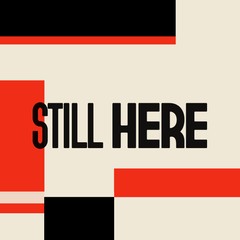On May 25th a reckoning with systemic racism was reignited. It's still here — and so are we.
Advertisement
Advertisement
This video does not represent the big brother that Philonise knew. But Philonise knows that for most of the world, that video is George Floyd, and George Floyd is that video. He has vowed to not let that video be in vain."That's what it has taken for the world to see what's going on," he says. "And we don't want any more. It shouldn't be any more George Floyds. It shouldn't be any more Breonna Taylors. We need awareness right now of what's going on."There is something jarring about hearing Philonise, the baby brother, say that there shouldn't be "any more George Floyds." I know he wants his brother back. But he’s not talking about his brother here. When he says “George Floyd,” he is talking about his brother not as a person but as an event, the way when people say “no more Columbines,” they mean the 1999 shooting, not the high school. He’s speaking about his brother as an abstract concept.But then again, he's only speaking in the language of the rest of the world. He's speaking how the people marching in the streets speak. How the racist detractors speak. How the journalists speak. He's speaking like this because I don't know who George was. I can't. There's not enough time for that.“People look at my brother as a cause, you know?” he says, matter-of-factly. “But in reality, he was a loving person to us.”"I could never mourn like others could, because there was always somebody wanting to do an interview."
Advertisement
Advertisement
Philonise Floyd stands in front of a mural of his murdered brother, George Floyd. (Javier Fernandez/VICE News)
Advertisement
Advertisement
Advertisement
The proposed version also aims to end qualified immunity, the judicial doctrine that currently keeps police officers from being personally sued for civil rights violations—though some lawmakers are calling to drop or modify that portion. But regardless of how negotiations go on Capitol Hill, Philonise wants to be at as many events, in person, as possible.“I just realized in this world that if I keep getting out, speaking, speaking, speaking, I can change people little by little,” he says. “That's big for me.”He pauses, and looks over my shoulder. "Somebody's waving," he says.I turn around and see a car parked by the side of the road. A middle-aged woman has rolled down her window and is waving Philonise over. She wants to talk to him. He motions for me to come with him, to hear what she has to say.We walk over to her car. She immediately begins questioning Philonise about his responsibility in keeping the movement on track."Brothers are being killed," she begins, and "the money being raised ... isn't going back to Black men." She begins to assert her suspicions of various social justice groups. "Is any of this going back to help the brothers?""You know, that's their own organization, and I can't... I can't tell them what to do," he smiles, quietly. "To be honest with you, I have so much going on..."“I feel that God has anointed me on a path that I didn't understand. This came to my front door. I never expected this.”
Advertisement
